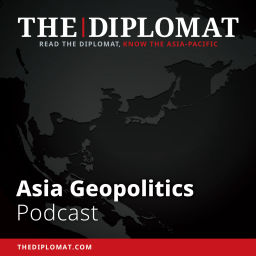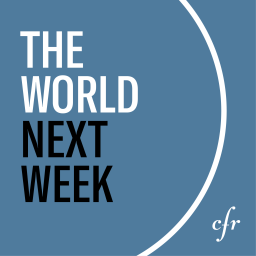
by Asia Institute, The University of Melbourne
<p>On Ear to Asia, we talk with Asia experts to unpack the issues behind news headlines in a region that is rapidly changing the world. Ear to Asia is produced by Asia Institute, the Asia research specialists at the University of Melbourne, Australia. Subscribe to us on Apple Podcasts, Spotify, or wherever you get your podcasts.</p>
Language
🇺🇲
Publishing Since
9/28/2016
Email Addresses
0 available
Phone Numbers
0 available

March 25, 2025
<p>While Mandarin has long been China's official language, recent policies have accelerated its dominance — often at the expense of minority languages. Despite constitutional protections, a 2020 legislative shift has cast a shadow over the future of minority language education, raising concerns among ethnic minority groups like the Zhuang in southern China and communities in Tibet. Why is China doubling down on Mandarin’s dominance despite its already firm hold? What impact do these language policies have on ethnic minority communities? And what steps are needed to preserve China’s rich linguistic diversity? Researchers of linguistic diversity Dr Lajiadou from Asia Institute and Dr Alexandra Grey from University of Technology Sydney join host Sami Shah to examine the impact of China’s language policies on the future of ethnic minority languages and the communities that speak them. An <a target="_blank" rel="noopener noreferrer nofollow" href="https://arts.unimelb.edu.au/asia-institute/podcasts">Asia Institute podcast</a>. Produced and edited by <a target="_blank" rel="noopener noreferrer nofollow" href="http://profactual.com">profactual.com</a>. Music by <a target="_blank" rel="noopener noreferrer nofollow" href="http://audionautix.com">audionautix.com</a>.</p>

January 21, 2025
<p>Afghanistan’s Taliban government has been busy appointing ambassadors, courting foreign investment, and participating in global forums, all with the aim of winning international recognition and standing. And it's paid off to a degree: last year China and the UAE both established formal diplomatic ties with the Taliban government, putting stability and economic opportunity ahead of ideological concerns like human rights that have inhibited similar moves by Western nations. </p><p>Meanwhile, the Afghan people continue to face a complex reality of systemic repression, particularly against women, as well as ongoing economic and security challenges.</p><p>So can engagement compel the Taliban to genuinely improve their human rights record and counter-terrorism efforts? What are the consequences of isolation versus engagement for the Afghan people, and for the international community? And how might the new Trump administration reshape US-Afghanistan relations?</p><p>Masoom Stanekzai, former chief peace negotiator of the Islamic Republic of Afghanistan, and Dr. Niamatullah Ibrahimi, a peacebuilding expert, both from the University of Melbourne, join host Sami Shah to examine the geopolitical and humanitarian dilemmas surrounding the Taliban regime and its global relations. An <a target="_blank" rel="noopener noreferrer nofollow" href="https://arts.unimelb.edu.au/asia-institute/podcasts">Asia Institute podcast</a>. Produced and edited by <a target="_blank" rel="noopener noreferrer nofollow" href="http://profactual.com">profactual.com</a>. Music by <a target="_blank" rel="noopener noreferrer nofollow" href="http://audionautix.com">audionautix.com</a>.</p>

December 12, 2024
Dr. Geoff Raby joins Ali Moore to explore China's strategic expansion in Central Asia, leveraging its Belt and Road Initiative to secure borders and boost global ambitions.

The Diplomat

Lowy Institute

Darren Lim

Center for Strategic and International Studies

Council on Foreign Relations

Foreign Policy

The Australian National University

Kaiser Kuo

ANU National Security College

Goalhanger

Center for Strategic and International Studies

Arthur Snell

The Economist

The Spectator

Goalhanger
Pod Engine is not affiliated with, endorsed by, or officially connected with any of the podcasts displayed on this platform. We operate independently as a podcast discovery and analytics service.
All podcast artwork, thumbnails, and content displayed on this page are the property of their respective owners and are protected by applicable copyright laws. This includes, but is not limited to, podcast cover art, episode artwork, show descriptions, episode titles, transcripts, audio snippets, and any other content originating from the podcast creators or their licensors.
We display this content under fair use principles and/or implied license for the purpose of podcast discovery, information, and commentary. We make no claim of ownership over any podcast content, artwork, or related materials shown on this platform. All trademarks, service marks, and trade names are the property of their respective owners.
While we strive to ensure all content usage is properly authorized, if you are a rights holder and believe your content is being used inappropriately or without proper authorization, please contact us immediately at [email protected] for prompt review and appropriate action, which may include content removal or proper attribution.
By accessing and using this platform, you acknowledge and agree to respect all applicable copyright laws and intellectual property rights of content owners. Any unauthorized reproduction, distribution, or commercial use of the content displayed on this platform is strictly prohibited.